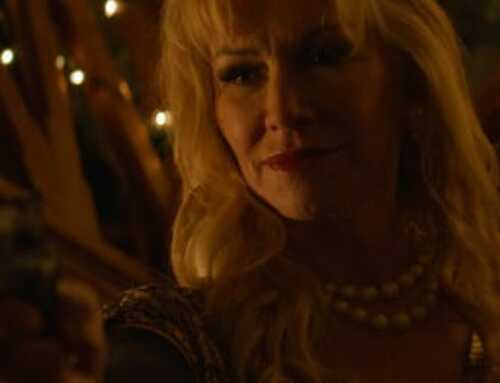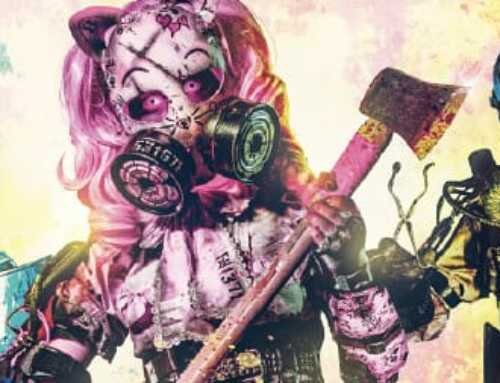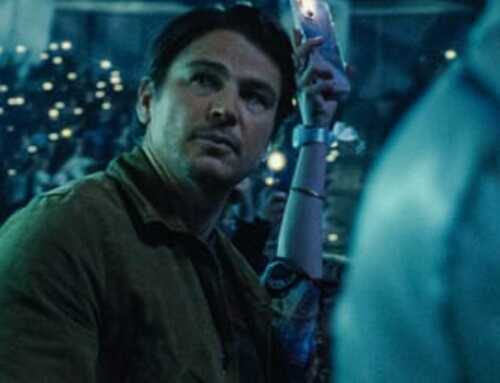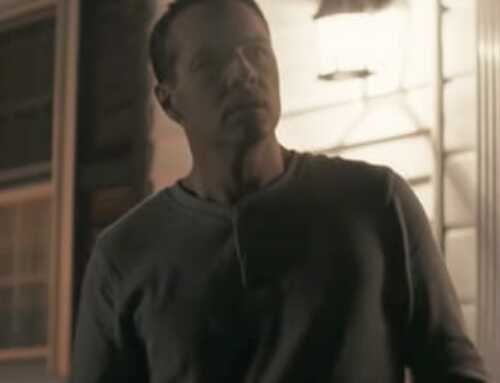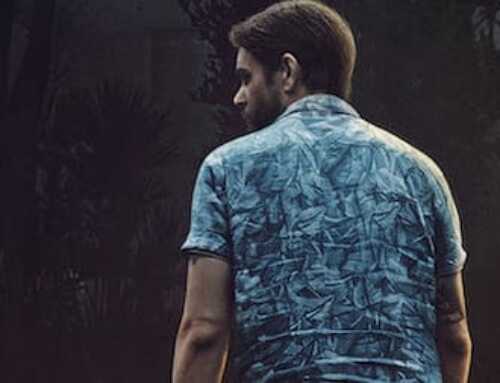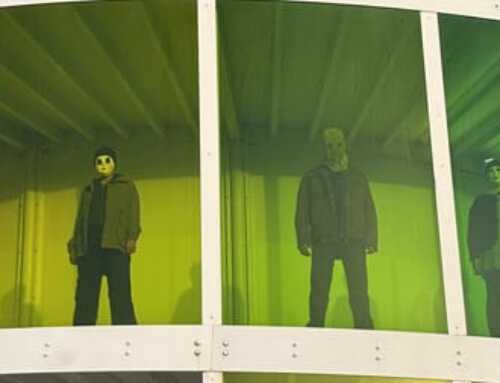In the year 2056, Earth’s environment has deteriorated so badly, that only the extremely wealthy can live in “air domes,” where the outside air is filtered so that it is breathable. Large corporations have replaced governments, and conflicts are resolved by their corporate armies. With this background, the story centers on the Rubikon, a space station owned by the Nibra Corporation, the last such company attempting to alleviate the environmental crisis. One of their employees, Hannah Wagner (Julia Franz Richter) travels to Rubikon to bring back the research of Dimitri Krylow (Mark Ivanir), who may have discovered a way to create breathable oxygen. While on the space station, some kind of catastrophic event takes place on Earth in the form of a toxic cloud that wipes out any remaining life, leaving Hannah and Dimitri plus Gavin Abbot (George Blagden) stranded in space.
Rubikon uses this launching-off point to explore the moral questions that face the survivors on the space station. There is a group of 300 people who have apparently survived the disaster on Earth, and establish radio contact. The question facing the three astronauts is whether or not they attempt to travel back to the planet to help save those survivors or remain on the station where they could survive for a while with Krylow’s oxygen tech. It’s an interesting and compelling conflict, one that demands attention and thought. The issue is with how long the movie takes to get there. Before getting to these moral questions, before it is known there is survivors on Earth, the three characters decide the best way to spend their time is to get drunk, dance, and play cards. While these actions also serve the practical purpose of revealing the background of each of the characters, it also grinds the main narrative to a standstill. Revealing the back stories in a more elegant way while also driving the story forward and providing plot points would have made the middle third of the movie feel like less of a drag. The interesting moral conflict of the story gets swallowed up by a slow middle.
The actors are up to the task and are a bright spot, particularly Julia Franz Richter and Mark Ivanir. Richter brings a formidable screen presence, a woman not only trying to do her job but also desperately trying to protect a sister back on earth. Richter is an assertive, strong screen presence as she pushes for the crew to return to earth and help the survivors there. Ivanir’s Dimitri wants the opposite, believing their best option is to stay in space and survive. Ivanir brings a quiet, intense passion to his character. The love and belief in his work shine through, and it’s clear why he’s reluctant to return to Earth and have to potentially relinquish his life’s work to a large corporation.
The other star of the movie is the set design. The space station Rubikon set is ornate and believable, with all the screens and sliding doors and beeping panels that you would expect of such a movie. It establishes a sense of place well, one that the audience immediately becomes accustomed to.
While the middle of Rubikon bogs down the pace, the idea, and the acting make it an interesting journey. Get past that, and there are valuable questions to ponder and moments to be taken away. The setup is one we’ve seen before, but the conflict takes on a more interesting shape, and that alone is worth the watch.
7 out of 10
| Rubikon | ||
| RATING: | NR |
RUBIKON Trailer (2022) Sci-Fi Movie |
| Runtime: | 1 Hr. 50 Mins. | |
| Directed By: | ||
| Written By: | ||


